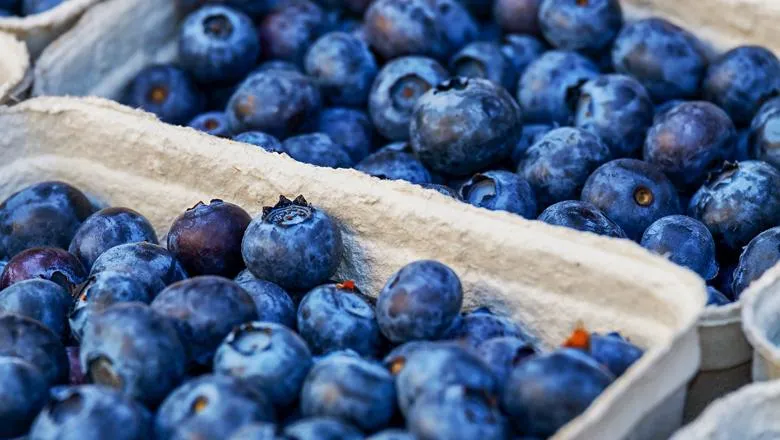
Dr Ana Rodriguez-Mateos
Reader in Nutritional Sciences
Research interests
- Nutrition
Biography
Dr Rodriguez-Mateos is a Reader at the Department of Nutritional Sciences of King’s College London. Her research aims to investigate the health benefits of plant foods and phytochemicals, with a strong focus on understanding the bioavailability, metabolism and cardiovascular health benefits of dietary polyphenols. More recent interests include the investigation of the role of the gut microbiome on the health benefits of phytochemicals, and the development of biomarkers of food intake using metabolomic approaches. Her expertise includes development and validation of analytical methods for the analysis of foods and biological samples using LC/GC-MS and performance of randomized controlled trials with cardiovascular outcomes.
She is a Registered Nutritionist, Fellow of Royal Society of Chemistry and Fellow of the UK Higher Education Academy. She is also the Programme Director of the BSc in Nutritional Sciences, an Associate Editor for the Journal Food and Function, member of the Editorial Board of Nutrition and Healthy Aging, and member of the UK and American Nutrition Societies.
Research

Cardiometabolic health and diet
The Cardiometabolic health and diet Research Group is led by Dr Wendy Hall.

Ageing Research at King's (ARK)
Cross faculty consortium addressing ageing and healthy longevity.

Innovation for Safe and Sustainable Food, Nutrition and Health
This Research Interest Group on Innovation for Safe and Sustainable Food, Nutrition and Health provides a unique opportunity for the King’s research community to address the challenges of sustainable food development.

Personalised nutrition
Personalised nutrition, also known as precision nutrition, is a dietary strategy that takes into account an individual's genetic and phenotypic characteristics, lifestyle, and environmental factors to provide tailored dietary recommendations.

Phytochemicals
Phytochemicals are plant secondary metabolites. Currently, more than 10000 different types of phytochemicals have been identified, and many still remain unknown.

Bioaccesibility & bioavailability of nutrients and bioactives
Iron deficiency (ID) and iron-deficiency anemia (IDA) are global problems that affect more than 2 billion people accounting for 0.8 million deaths annually worldwide. Consequently, sustainable food-based approaches are being advocated to increase the intake of foods with high iron content and bioavailability.

Mental health and diet
This research group aims to explroes the (1) mechanisms of food compounds, nutrients, foods, and whole diets on mental health and illness, and (2) the clinical efficacy and effectiveness of such nutritional interventions.

Dietary assessment and dietary biomarkers
A key limitation in nutrition research is that current methods available for dietary assessment, including food frequency questionnaires (FFQs), food diaries or dietary recalls, are known to be error-prone and inaccurate, as they rely on self-report assessment which are subject to bias.

Centre for Ageing Resilience In a Changing Environment - CARICE
Welcome to the Centre for Ageing Resilience in a Changing Environment: CARICE
News
New way to measure diet quality using plant metabolites
Researchers have developed a new way to measure diet quality by looking at metabolites in the body specific to healthy, plant-based foods. The researchers...

A handful of blueberries a day could help improve brain function
New research from King’s Faculty of Life Sciences and Medicine has found that eating a handful of wild blueberries daily has health benefits, including...

100g of cranberries a day improves cardiovascular health
A new clinical trial found daily consumption of cranberries for one month improved cardiovascular function in healthy men.

Events

The Nutrition Society: Phytochemicals and Health Symposium
This meeting aims to raise awareness of the evidence base supporting the health benefits of consumption of phytochemicals, derived from high quality...
Please note: this event has passed.
Features
Spotlight on nutrition: Research into the impacts of our diets
From beans, to berries to new types of bread, our researchers have been doing a range of work to help us better understand how you are what you eat.

Six ingredients to make a nutritious Christmas meal
We've pulled together the perfect recipe for a hearty and healthy Christmas meal to get you through the holiday season

Health and self for 2020
Kick start your New Year’s resolutions with these top tips based on research from King's

Research

Cardiometabolic health and diet
The Cardiometabolic health and diet Research Group is led by Dr Wendy Hall.

Ageing Research at King's (ARK)
Cross faculty consortium addressing ageing and healthy longevity.

Innovation for Safe and Sustainable Food, Nutrition and Health
This Research Interest Group on Innovation for Safe and Sustainable Food, Nutrition and Health provides a unique opportunity for the King’s research community to address the challenges of sustainable food development.

Personalised nutrition
Personalised nutrition, also known as precision nutrition, is a dietary strategy that takes into account an individual's genetic and phenotypic characteristics, lifestyle, and environmental factors to provide tailored dietary recommendations.

Phytochemicals
Phytochemicals are plant secondary metabolites. Currently, more than 10000 different types of phytochemicals have been identified, and many still remain unknown.

Bioaccesibility & bioavailability of nutrients and bioactives
Iron deficiency (ID) and iron-deficiency anemia (IDA) are global problems that affect more than 2 billion people accounting for 0.8 million deaths annually worldwide. Consequently, sustainable food-based approaches are being advocated to increase the intake of foods with high iron content and bioavailability.

Mental health and diet
This research group aims to explroes the (1) mechanisms of food compounds, nutrients, foods, and whole diets on mental health and illness, and (2) the clinical efficacy and effectiveness of such nutritional interventions.

Dietary assessment and dietary biomarkers
A key limitation in nutrition research is that current methods available for dietary assessment, including food frequency questionnaires (FFQs), food diaries or dietary recalls, are known to be error-prone and inaccurate, as they rely on self-report assessment which are subject to bias.

Centre for Ageing Resilience In a Changing Environment - CARICE
Welcome to the Centre for Ageing Resilience in a Changing Environment: CARICE
News
New way to measure diet quality using plant metabolites
Researchers have developed a new way to measure diet quality by looking at metabolites in the body specific to healthy, plant-based foods. The researchers...

A handful of blueberries a day could help improve brain function
New research from King’s Faculty of Life Sciences and Medicine has found that eating a handful of wild blueberries daily has health benefits, including...

100g of cranberries a day improves cardiovascular health
A new clinical trial found daily consumption of cranberries for one month improved cardiovascular function in healthy men.

Events

The Nutrition Society: Phytochemicals and Health Symposium
This meeting aims to raise awareness of the evidence base supporting the health benefits of consumption of phytochemicals, derived from high quality...
Please note: this event has passed.
Features
Spotlight on nutrition: Research into the impacts of our diets
From beans, to berries to new types of bread, our researchers have been doing a range of work to help us better understand how you are what you eat.

Six ingredients to make a nutritious Christmas meal
We've pulled together the perfect recipe for a hearty and healthy Christmas meal to get you through the holiday season

Health and self for 2020
Kick start your New Year’s resolutions with these top tips based on research from King's

